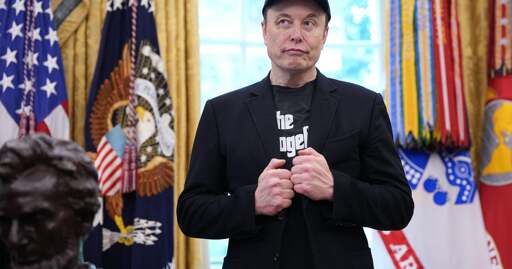In North Korea, your phone secretly takes screenshots every 5 minutes for government surveillance
-
A smartphone smuggled out of North Korea is offering a rare – and unsettling – glimpse into the extent of control Kim Jong Un's regime exerts over its citizens, down to the very words they type. While the device appears outwardly similar to any modern smartphone, its software reveals a far more oppressive reality.
The phone was featured in a BBC video, which showed it powering on with an animated North Korean flag waving across the screen. While the report did not specify the brand, the design and user interface closely resembled those of a Huawei or Honor device.It's unclear whether these companies officially sell phones in North Korea, but if they do, the devices are likely customized with state-approved software designed to restrict functionality and facilitate government surveillance.
One of the more revealing – and darkly amusing – features was the phone's automatic censorship of words deemed problematic by the state. For instance, when users typed oppa, a South Korean term used to refer to an older brother or a boyfriend, the phone automatically replaced it with comrade. A warning would then appear, admonishing the user that oppa could only refer to an older sibling.
Typing "South Korea" would trigger another change. The phrase was automatically replaced with "puppet state," reflecting the language used in official North Korean rhetoric.
Then came the more unsettling features. The phone silently captured a screenshot every five minutes, storing the images in a hidden folder that users couldn't access. According to the BBC, authorities could later review these images to monitor the user's activity.
The device was smuggled out of North Korea by Daily NK, a Seoul-based media outlet specializing in North Korean affairs. After examining the phone, the BBC confirmed that the censorship mechanisms were deeply embedded in its software. Experts say this technology is designed not only to control information but also to reinforce state messaging at the most personal level.
Smartphone usage has grown in North Korea in recent years, but access remains tightly controlled. Devices cannot connect to the global internet and are subject to intense government surveillance.
The regime has reportedly intensified efforts to eliminate South Korean cultural influence, which it views as subversive. So-called "youth crackdown squads" have been deployed to enforce these rules, frequently stopping young people on the streets to inspect their phones and review text messages for banned language.
Some North Korean escapees have shared that exposure to South Korean dramas or foreign radio broadcasts played a key role in their decision to flee the country. Despite the risks, outside media continues to be smuggled in – often via USB sticks and memory cards hidden in food shipments. Much of this effort is supported by foreign organizations.
I’d have been shocked if it didn’t record everything. Who you call, texts, voice, installed apps ans usage. Snapping pics is pretty grim, though.
-
I’d have been shocked if it didn’t record everything. Who you call, texts, voice, installed apps ans usage. Snapping pics is pretty grim, though.
I’m sure it’s not to the same extent, but I feel like US does the same thing just not as directly. Like the fact that they can triangulate my position at any moment in time with cell tower data.
-
What kind of tankie bullshit argument is that lmao
A factually accurate one lol
-
Do you know a communist country that hasn't devolved into a dictatorship?
There can be no communist state as communism is anti-state, but the nordic countries in Europe are great examples of successful democratic socialism
-
That's why laws like the GDPR exist to prevent this bullshit.
GDPR
Does not exist in Murica
-
GDPR
Does not exist in Murica
But it does in the EU and similar laws exist in other countries. I can do nothing about the corruption in the states
Ps. it does exist in Amerika
-
There can be no communist state as communism is anti-state, but the nordic countries in Europe are great examples of successful democratic socialism
The nordic countries are comparable to the US in terms of economic freedom (i.e. how "capitalist" a country is), the main difference is they have massive social welfare programs, whereas the US has more modest social welfare programs. That's a very different definition of "socialism" than the classical one, where the means of production are owned collectively by the people.
Also, a country can be "communist" without having an actual communist society, being "communist" just means they loosely have the goal of achieving a communist society someday.
-
After examining the phone, the BBC confirmed that the censorship mechanisms were deeply embedded in its software.
Remember, this could happen in your country.
Its always "It Can't Happen Here" until it does.
“It Can’t Happen Here”
Unironically a good book about fascism happening in the US, and was written before 1984 and other dystopian novels that were largely reactionary to the USSR.
-
I’m sure it’s not to the same extent, but I feel like US does the same thing just not as directly. Like the fact that they can triangulate my position at any moment in time with cell tower data.
Yep. Your private data is one corporate fuckup or subpoena away from being accessed. A pretty thin barrier.
-
There can be no communist state as communism is anti-state, but the nordic countries in Europe are great examples of successful democratic socialism
A liberal called the nordic states socialist
You take 3d6 psychic damage
-
I’d have been shocked if it didn’t record everything. Who you call, texts, voice, installed apps ans usage. Snapping pics is pretty grim, though.
Is the last sentence a pun? If so I really like it
-
does anyone really think our freedom phones are far from this?
Maybe the western world can be given some credit on being a tad more subtle, but overall the difference here are in tecnique, not goals
Yes, because here in the capitalist USA I am free to choose what phone and carrier I use, and what OS and software my phone have on them. The free market decided that I should have access to bootloader unlockable phones with open source OS and zero shitty Facebook apps spying on me.
-
What kind of tankie bullshit argument is that lmao
Eh, they didn’t exactly paint it in a good light. It’s more like not laughing too much at the ordinary NK citizen’s big brother plight while the rest of us are being monitored constantly and much more real time.
The two situations are not the same, but the parallels show his we all deal with this crap in our own ways.
-
I absolutely agree with you. What I'm arguing against is baseless FUD without any specifics, any sources, any details, and making extraodinary claims without extraordinary evidence. I didn't mean that the type of tracking is ridiculous, what I'm saying is ridiculous is the claim that Google is collecting the logs of EVERY touch on EVERY Android device. Does that claim even needs to be disproven?
- Is that happening on Chinese Android phones without any Google services?
- Is that happening on AOSP phones without Google services?
- Is that happening on GrapheneOS, on other custom ROMs?
- Is that happening on my washing machine that for some reason runs Android?
- Is that baked into the system? From which Android version? In a particular system app? Where can I see these logs of all touches for myself?
It is patently obvious it cannot be happening on EVERY Android device. And I'd welcome evidence that it's happening on even a SINGLE one. But I don't see it. Because it's made up hyperbole that's poisoning the discussion of real tracking.
Because your touches are tracked. But not system-wide, but in individual apps, by the individual developers, most of whom don't share the data with Google, only if you use these apps, and each developer can only track what's happening in their own app. Which is worth talking about, but it's hard when people are just making stuff up.
I mentioned "Google Account Settings." It is buried deep within submenus, so it is harder for regular users to find.
However, you can find it by navigating through your Google account settings.
Look for "Manage your data & privacy" > "History settings" > "Web & App Activity." -
Where can I disable this within my Google account I use on Android?
replied above
-
thats the same thing im asking!
replied above
-
Can you provide more information on how western governments are spying?
-
A smartphone smuggled out of North Korea is offering a rare – and unsettling – glimpse into the extent of control Kim Jong Un's regime exerts over its citizens, down to the very words they type. While the device appears outwardly similar to any modern smartphone, its software reveals a far more oppressive reality.
The phone was featured in a BBC video, which showed it powering on with an animated North Korean flag waving across the screen. While the report did not specify the brand, the design and user interface closely resembled those of a Huawei or Honor device.It's unclear whether these companies officially sell phones in North Korea, but if they do, the devices are likely customized with state-approved software designed to restrict functionality and facilitate government surveillance.
One of the more revealing – and darkly amusing – features was the phone's automatic censorship of words deemed problematic by the state. For instance, when users typed oppa, a South Korean term used to refer to an older brother or a boyfriend, the phone automatically replaced it with comrade. A warning would then appear, admonishing the user that oppa could only refer to an older sibling.
Typing "South Korea" would trigger another change. The phrase was automatically replaced with "puppet state," reflecting the language used in official North Korean rhetoric.
Then came the more unsettling features. The phone silently captured a screenshot every five minutes, storing the images in a hidden folder that users couldn't access. According to the BBC, authorities could later review these images to monitor the user's activity.
The device was smuggled out of North Korea by Daily NK, a Seoul-based media outlet specializing in North Korean affairs. After examining the phone, the BBC confirmed that the censorship mechanisms were deeply embedded in its software. Experts say this technology is designed not only to control information but also to reinforce state messaging at the most personal level.
Smartphone usage has grown in North Korea in recent years, but access remains tightly controlled. Devices cannot connect to the global internet and are subject to intense government surveillance.
The regime has reportedly intensified efforts to eliminate South Korean cultural influence, which it views as subversive. So-called "youth crackdown squads" have been deployed to enforce these rules, frequently stopping young people on the streets to inspect their phones and review text messages for banned language.
Some North Korean escapees have shared that exposure to South Korean dramas or foreign radio broadcasts played a key role in their decision to flee the country. Despite the risks, outside media continues to be smuggled in – often via USB sticks and memory cards hidden in food shipments. Much of this effort is supported by foreign organizations.
after the linux nerds opt out. there's still 98% of the flock begging for ai surveillance from recall and whatever apple's scam is lately.
-
A smartphone smuggled out of North Korea is offering a rare – and unsettling – glimpse into the extent of control Kim Jong Un's regime exerts over its citizens, down to the very words they type. While the device appears outwardly similar to any modern smartphone, its software reveals a far more oppressive reality.
The phone was featured in a BBC video, which showed it powering on with an animated North Korean flag waving across the screen. While the report did not specify the brand, the design and user interface closely resembled those of a Huawei or Honor device.It's unclear whether these companies officially sell phones in North Korea, but if they do, the devices are likely customized with state-approved software designed to restrict functionality and facilitate government surveillance.
One of the more revealing – and darkly amusing – features was the phone's automatic censorship of words deemed problematic by the state. For instance, when users typed oppa, a South Korean term used to refer to an older brother or a boyfriend, the phone automatically replaced it with comrade. A warning would then appear, admonishing the user that oppa could only refer to an older sibling.
Typing "South Korea" would trigger another change. The phrase was automatically replaced with "puppet state," reflecting the language used in official North Korean rhetoric.
Then came the more unsettling features. The phone silently captured a screenshot every five minutes, storing the images in a hidden folder that users couldn't access. According to the BBC, authorities could later review these images to monitor the user's activity.
The device was smuggled out of North Korea by Daily NK, a Seoul-based media outlet specializing in North Korean affairs. After examining the phone, the BBC confirmed that the censorship mechanisms were deeply embedded in its software. Experts say this technology is designed not only to control information but also to reinforce state messaging at the most personal level.
Smartphone usage has grown in North Korea in recent years, but access remains tightly controlled. Devices cannot connect to the global internet and are subject to intense government surveillance.
The regime has reportedly intensified efforts to eliminate South Korean cultural influence, which it views as subversive. So-called "youth crackdown squads" have been deployed to enforce these rules, frequently stopping young people on the streets to inspect their phones and review text messages for banned language.
Some North Korean escapees have shared that exposure to South Korean dramas or foreign radio broadcasts played a key role in their decision to flee the country. Despite the risks, outside media continues to be smuggled in – often via USB sticks and memory cards hidden in food shipments. Much of this effort is supported by foreign organizations.
No surprise, with my interest in North Korean culture, I know a thing or two,video here:
-
The true source of Microsoft innovations in Windows.
Seriously. This is exactly what people object to about Windows Recall. In its re-released version at least it's opt-in for now, but it's still eerily close to this.
-
Elon Musk wants SpaceX rockets over Hawaii. He recently asked the FAA to expand the area in the Pacific Ocean where Starships debris can land.
Technology 1
1
-
-
-
American attitudes about AI today mirror poll answers about the rise of the internet in the '90s
Technology 1
1
-
-
-
-
Pope Betting Odds: Bettors Lose Millions Predicting the New Pope as Polymarket Edge Fizzles Out
Technology 1
1




